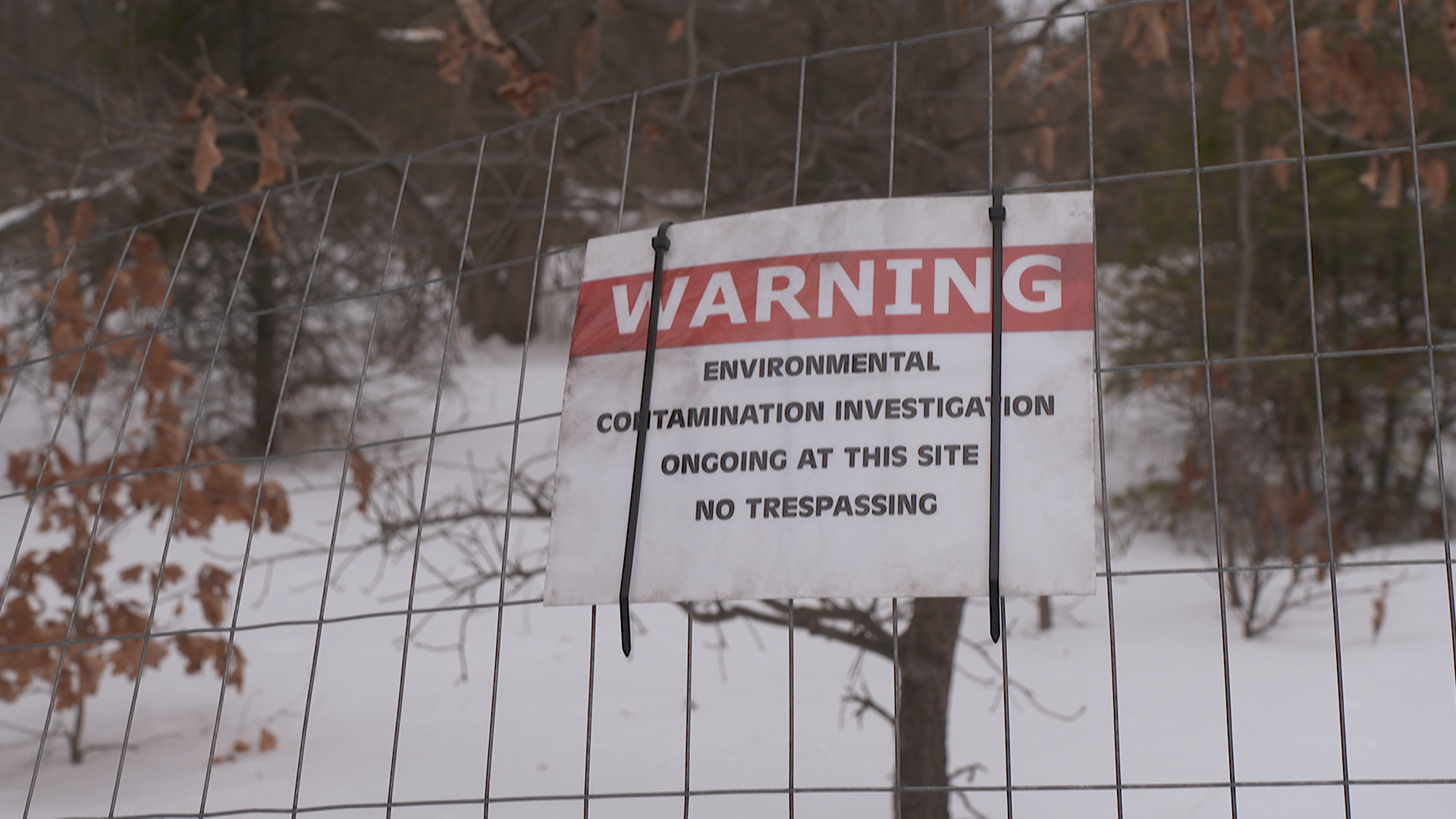
PFAS, short for per- and polyfluoroalkyl substances, are a group of widespread man-made chemicals that don’t break down in the environment or the human body and have been flagged as a major contaminant in sources of water across the country.
Keep up with PFAS-related developments in the Great Lakes area.
Click on the headline to read the full story:
Indiana:
- Preliminary State PFAS Testing Detects Toxic “Forever Chemicals” in Some Indiana Community Water Systems —Indiana Environmental Reporter
At least two Indiana communities have found PFA chemicals in both their treated and untreated drinking water. While there is no immediate risk posed to residents of these areas, long-term exposure could cause these individuals to face several health risks. A common nickname for PFAs is “forever chemicals”, as they are unable to break down and instead linger in whatever atmosphere they inhabit. According to officials, the community’s water systems have not reached contamination levels that exceed the U.S. Environmental Protection Agency’s health advisory, but low levels of PFAs could still pose as long-term threats.
Pennsylvania:
Julie Cassidy has lived on a small street in Warminster for 24 years, and she’s noticed that some neighbors have developed different types of cancer. Her own husband died of a rare kind of leukemia.
Cassidy wonders if exposure to PFAS played any role in the sheer number of cancer diagnoses on her street.
- Pa. will get $240M, and N.J. $169M, for clean water issues under bipartisan infrastructure bill – The Philadelphia Inquirer
The federal EPA has announced that Pennsylvania will receive $240 million and New Jersey will get almost $169 million to improve water infrastructure, tackling lingering issues such as environmental justice and contamination from “forever chemicals.”
The money comes from the historic $1 trillion bipartisan bill signed by President Joe Biden last month.
Residents of Willingboro, Burlington County, recently learned one of the township’s water supply wells has elevated levels of one type of the group of toxic chemical compounds known as PFAS, which are linked to some cancers and other health issues. Township officials say that the well was taken offline, and that the water is safe to drink.
- Pa. proposes rules to limit ‘forever chemicals’ in drinking water – Pittburgh Post-Gazette
The state’s environmental rule-making board voted Tuesday to release draft rules on two types of the synthetic chemicals, which spread easily in water, do not break down in the environment and build up in bodies, damaging human health.
Wisconsin:
- Water utility groups oppose PFAS regulations, urge state to wait for federal action – Wisconsin State Journal
Wisconsin water utilities and local governments are joining industry groups seeking to stop the state from limiting toxic “forever chemicals” in the state’s drinking water.
The Municipal Environmental Group’s water division — a trade association whose members include water utilities in Madison, Green Bay, Sun Prairie and 66 other communities — is urging the Department of Natural Resources to scrap rules developed over the past two years that would add certain fluorinated compounds to the list of regulated drinking water contaminants.
In comments submitted Tuesday, the group says the state should wait for the U.S. Environmental Protection Agency to adopt federal standards.
National:
U.S. Department of Defense efforts to clean up chemicals known as PFAS are an example of “bureaucracy run amok,” a Michigan environmental advocate testified before a U.S. Senate committee examining the response to pollution at military bases where toxic chemicals in firefighting foam have poisoned nearby waters.
Tony Spaniola, an attorney and leading national PFAS advocate who has battled the military over its pollution cleanup in Michigan, characterized defense officials as untrustworthy and opaque during his Thursday, Dec. 9 testimony on Capitol Hill before the Senate homeland security committee.
- PFAS Firefighter Grants Clear Hurdle as House Passes Biden Plan – Bloomberg Law
Firefighters moved a step closer to getting federal money for protective firefighting gear and firefighting foam that’s free of “forever chemicals” after the House passed Democrats’ massive social and climate spending package Friday.
The legislation includes $95 million to fund grants for local firefighters through the Federal Emergency Management Administration for personal protective equipment and to acquire foam free of per- and polyfluoroalkyl substances, or PFAS.
An industry toxicologist promoting artificial turf fields has repeatedly cited her work for EPA while downplaying the risks of “forever chemicals” used to produce plastic grass blades, making contentious claims often at odds with the agency’s own findings.
Laura C. Green has often referenced her role as an EPA special government employee while advocating for artificial turf fields in New England. In public meetings and written emails, Green has also sought to undercut concerns about the health risks of per- and polyfluoroalkyl substances known as PFAS.
A toxicologist who touted her links to EPA while advocating for artificial turf fields and downplaying the impacts of “forever chemicals” says she has ceased her work with the agency, as one town on Martha’s Vineyard is considering banning the fields altogether.
The changes come after an E&E News article this week called into question Laura C. Green’s comments about per- and polyfluoroalkyl substances, known as PFAS, which are used in manufacturing artificial turf. Green has performed work as an EPA special government employee, and often cited her agency experience to bolster her claims about the chemicals.
Many of the “forever chemicals” that end up in the ocean can “boomerang back to shore” after crashing waves reemit the compounds into the air, a new study has found.
This “sea-to-air transport” mechanism is polluting the air in coastal regions with toxic compounds called PFAS, according to the study, published in Environmental Science & Technology on Wednesday.
The new infrastructure law contains $10 billion for cleaning up drinking water that has been contaminated by a specific group of man-made chemicals. But problems with “forever chemicals” go back decades, and are located in many places around the U.S. Miles O’Brien looks at the impact they’ve had in one community in New Hampshire, and how the U.S. Air Force is now dealing with its past use of them.
Catch more news on Great Lakes Now:
Featured image: Sign warning for environmental contamination (Great Lakes Now Episode 1012)




